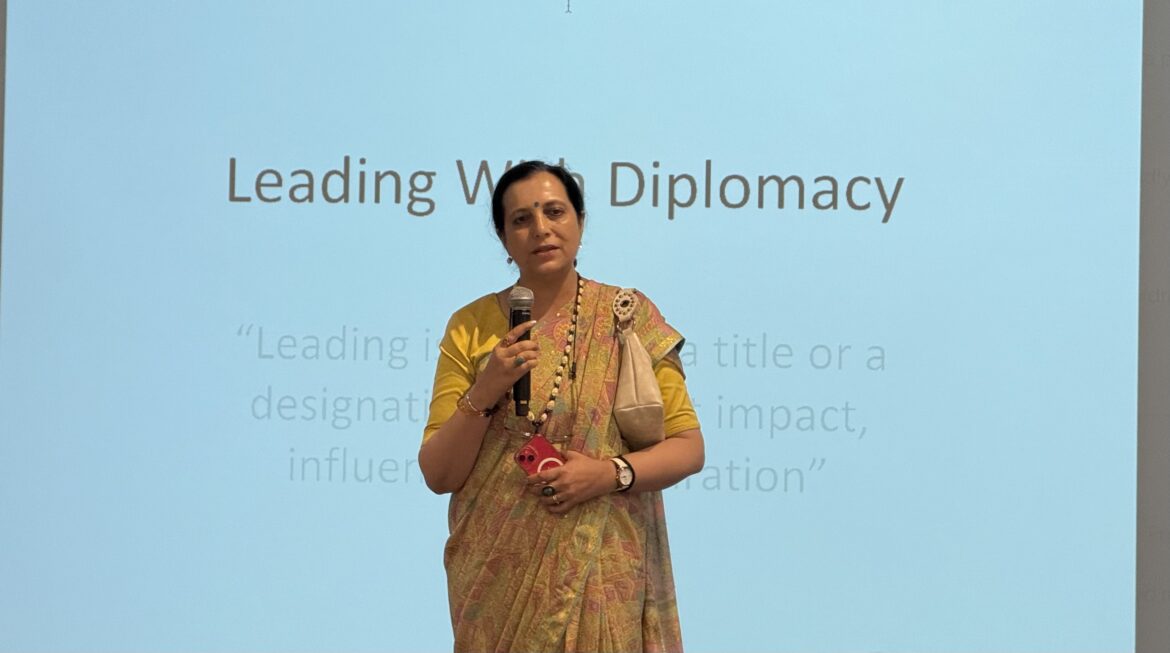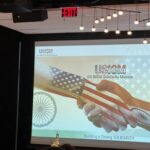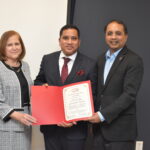Pooja Kwatra, wife of Indian Ambassador to the United States Vinay Kwatra, emphasized that leadership is not confined to boardrooms.
Speaking at the Indian American Business Impact Group (IMBIG) Youth Leadership Bootcamp on June 8, 2025, in Tysons Corner, Virginia, Kwatra said leadership often begins in everyday spaces such as schools, homes, and during community gatherings such as festivals, potlucks, or even while sharing recipes. These, she noted, foster deep connections that quietly shape future leaders.
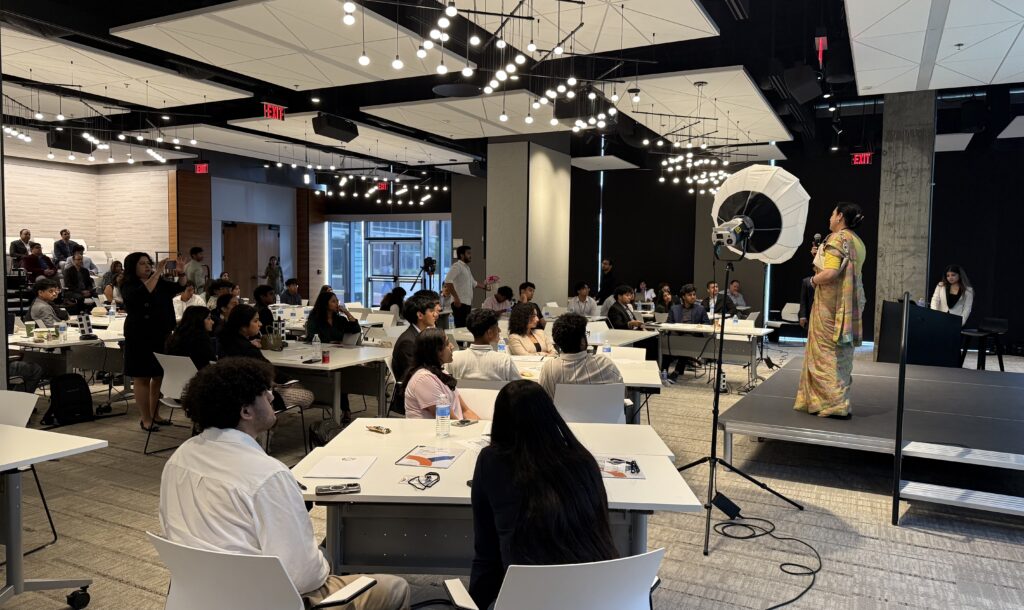
“This is what the connect is that I want you to be very aware and very conscious of and very proud of. So, as Indian Americans, what are we learning here in the boot camp? We are the leaders of tomorrow, right?” she said while addressing the participants on diplomacy and leadership.
Speaking to a group of students aged 14 to 24 who attended the June 6-8 bootcamp, Kwatra urged them to carry their Indian identity with pride as they step into global academic or professional spaces. “Your main root is the Indian ethos, and believe me that enriches you, that makes your standpoint so strong, and that open mindedness makes you embrace and appreciate other cultures also.”
Now on their second posting in Washington D.C., Kwatra said she has been promoting Ayurveda and traditional Indian knowledge in the U.S. capital. She underscored the lasting impact of even small exchanges noting the “knowledge” shared, no matter how small, will “create ripples” and empower others.
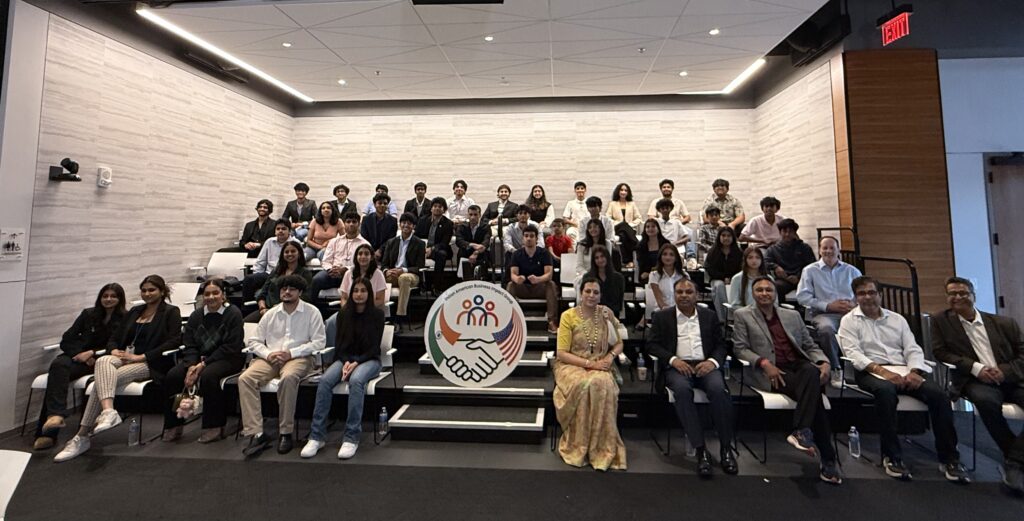
She also highlighted India’s ancient philosophy of Vasudhaiva Kutumbakam meaning “the world is one family.” She pointed out, “This is how we go and embrace other cultures. And we just embrace the other cultures, not from a very weak standpoint, from a very strong one because we have a lot to give, and that’s how the quiet leadership happens in the loudest of spaces.”
Calling herself as a “global nomad,” Kwatra shared that in the last three decades, she has lived in over six countries across northern and southern hemispheres. “India is looking so good on the global horizon,” she said noting that India’s global image has evolved significantly. “India rising means even we get a momentum and impetus to move forward. Ours is a young country, is a country of innovations.”
Kwatra, who holds an MBA and an M.Phil. in Finance, shared her personal journey of adaptability – how she transitioned from a career in business to education when her husband was posted to Durban, South Africa in 1994 to establish India’s first Consulate General there. She pursued a two-year bachelor’s in education and became a math teacher. “It’s just because I was determined. I was open minded. I had confidence in myself,” she said, encouraging the youth to cultivate an “open-minded” and resilient mindset.
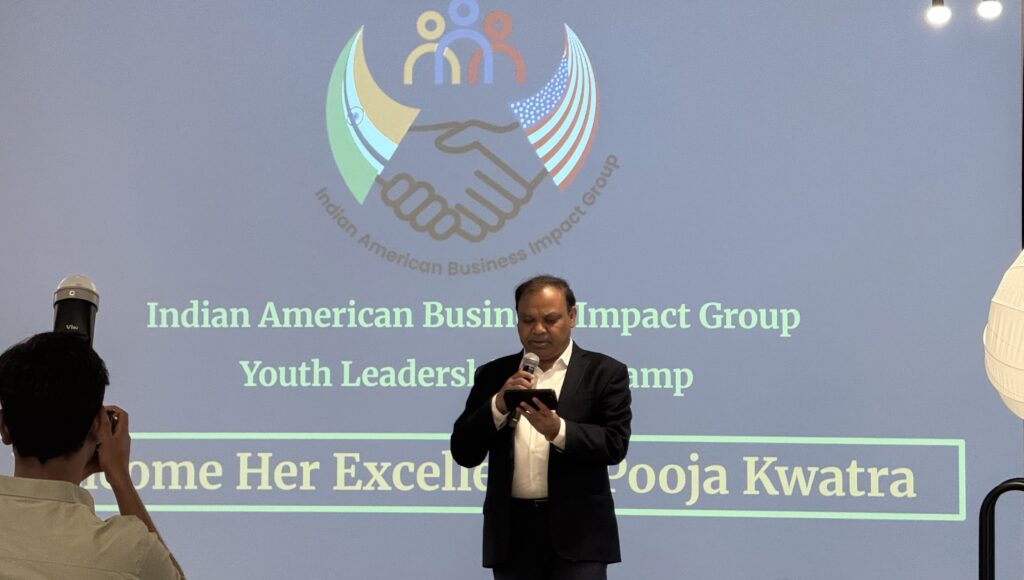
Reflecting on her experiences as an “international educator,” Kwatra spoke of the challenges and growth that come with diplomatic life. In Durban, she recalled being met with misconceptions about India, citing humorous and sometimes ignorant comments such as, “Oh, you came in a ship” “Oh, you came from a country of snake charmers,” and “how did you survive plague there? For many, she said, India was perceived as “just like a banana republic.”
She emphasized the importance of cultural diplomacy, noting that Indian “cuisine and culture” often served as instant connectors wherever she lived. While language barriers were a common challenge, she highlighted the creative ways she built bridges with local communities.
In Tashkent, Uzbekistan, she recalled how her Indian attire and jewelry opened conversations about Bollywood at the local market. Vendors would recognize her and inquire about Indian actors like Raj Kapoor, Salman Khan, and Mithun Chakraborty. “For them, we were like guests. And they just love talking to us.”
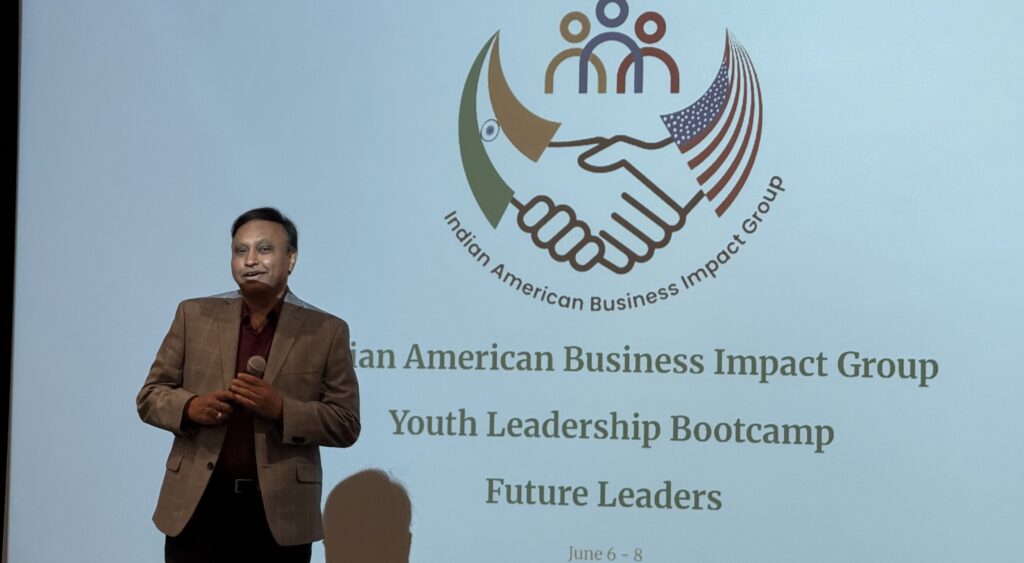
Kwatra said her decision to live in a local neighborhood during their Tashkent posting was transformative. “I think that was the best decision we made,” she noted, explaining that Uzbek and Hindi share nearly 2,000 common words, enabling her to communicate and forge meaningful connections. “We learned so much from their culture, and they learned so much from us.”
She recounted one particularly memorable incident involving a local home remedy upon returning home from school one day, she smelled vodka and assumed her nanny had been drinking. Instead, she learned her nanny had given her infant son a “vodka bath” to reduce his fever. The nanny told Kwatra that vodka helps in an “exothermic reaction,” bringing down the temperature. An example of the kinds of traditional remedies shared across cultures.
Recalling the early 1990s, when her husband’s diplomatic career began in Geneva, Kwatra noted how different communication was in a pre-digital era. “There was no WhatsApp, and telephone calls were very expensive. All we looked forward to was the diplomatic bag that arrived every week with letters from home.”
Thanking Kwatra for her inspiring talk, IMBIG Co-founder Ravi Puli said his organization sees the student participants as “future leaders” and is committed to supporting their journeys. “We came together to start this group and are trying to give them as much as we can so that they can choose a better career and also become a leader instead of being a follower,” he said.
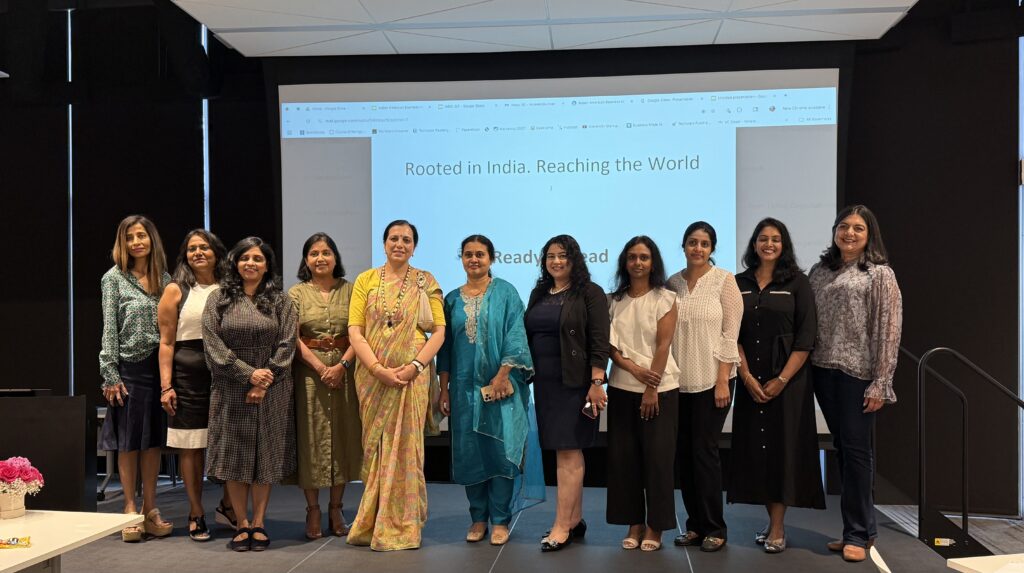
Co-founder Anil Sharma also expressed appreciation to the attendees for embracing leadership. He highlighted that over three days, students heard directly from successful business leaders and entrepreneurs. “We wanted to create a space for young leaders where they can explore leadership opportunities, embrace challenges, and build meaningful connections.”
As part of the program, every student shared a 30-second pitch outlining a goal they plan to pursue over the next 12 weeks, and about their accountability partners.
Student Khushi Raval told South Asian Herald, “It gave us the chance to meet inspiring business leaders, entrepreneurs, and experts from a variety of fields. One of the best features of the program was how interactive it was — we were able to ask questions, gain valuable insights, and connect directly with these great personalities.”
Reflecting on her own takeaway, Raval added, “We each presented a pitch about a goal we planned to work on over the next 12 weeks. In my pitch, I shared my goal, how I plan to track and follow through on it, why it matters to me, and who my accountability partners are — in my case, my parents.”


